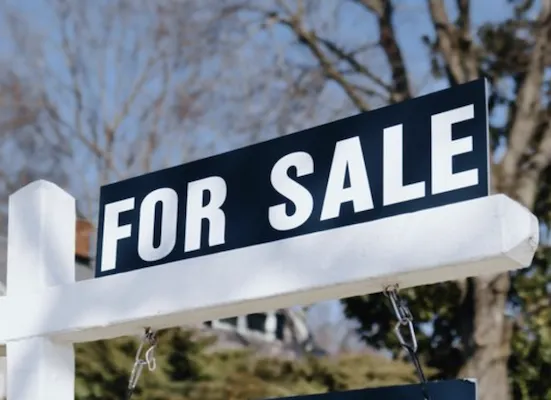
The Costs of Selling a Home: What You Should Budget For
Selling a home is a significant financial transaction that comes with exciting potential profits, but it’s also essential to understand the associated costs. Many sellers underestimate these expenses, which can lead to surprises during the process. Proper planning and budgeting can ensure a smoother transaction and help you maximize your profit.
Real Estate Agent Fees
One of the most common costs of selling a home is the real estate agent’s commission. Typically, this fee is around 5% to 6% of the home’s selling price, though it can vary depending on your location and the agent’s expertise. This commission is often split between the seller’s agent and the buyer’s agent. While this may seem like a significant expense, a skilled real estate agent can help you price your home competitively, market it effectively, and negotiate the best deal, which often justifies the cost.
Home Repairs and Improvements
Before listing your property, you may need to invest in repairs and improvements to make your home more appealing to potential buyers. These could include fixing leaky faucets, repainting walls, or replacing outdated fixtures. Larger projects, like replacing a roof or upgrading appliances, might also be necessary if they significantly affect the home’s value or buyer interest.
Staging your home is another expense that can make a significant impact. Professionally staged homes often sell faster and at higher prices because they help buyers visualize the property’s potential. Staging costs can range from a few hundred to several thousand dollars, depending on the size of your home and the extent of the staging.
Pre-Sale Inspections
While not mandatory, some sellers choose to conduct a pre-sale home inspection to identify potential issues that buyers might uncover. Addressing these problems upfront can prevent delays during the closing process. Pre-sale inspections typically cost between $300 and $500 but can provide peace of mind and a smoother transaction.
Closing Costs
Closing costs aren’t just for buyers—sellers also need to cover certain expenses during the closing process. These can include:
Title Insurance: Protects the buyer and lender from any disputes over property ownership.
Escrow Fees: Covers the cost of the escrow company managing the transaction.
Prorated Property Taxes: Sellers are responsible for taxes up to the closing date.
Attorney Fees: In some states, it’s required to have a real estate attorney involved in the transaction.
On average, closing costs for sellers can range from 1% to 3% of the home’s selling price.
Mortgage Payoff
If you still owe money on your mortgage, you’ll need to pay off the remaining balance at closing. Be sure to check with your lender for the exact payoff amount, as it may include prorated interest. Additionally, some lenders charge prepayment penalties for paying off a mortgage early, so it’s important to review your loan terms.
Moving Expenses
Once your home is sold, you’ll need to budget for moving costs. These can vary widely depending on the distance of your move and whether you hire professional movers. On average, local moves cost around $1,200, while long-distance moves can exceed $4,000. Don’t forget to account for packing supplies, storage fees, and any time off work you might need.
Taxes on Capital Gains
If you sell your home for more than you paid for it, you may be subject to capital gains taxes. However, many sellers qualify for exemptions. For example, if the property was your primary residence for at least two of the past five years, you can exclude up to $250,000 of the gain from your taxable income (or $500,000 for married couples filing jointly). Consult a tax professional to understand your specific situation.
Marketing Costs
While your real estate agent typically handles marketing, some sellers opt for additional advertising to reach a broader audience. This could include professional photography, virtual tours, or premium listings on real estate websites. These costs can range from a few hundred to over a thousand dollars, depending on the level of exposure you’re seeking.
Utility and Maintenance Costs
If your home doesn’t sell immediately, you’ll need to continue covering utility bills, lawn care, and other maintenance expenses until the closing date. These ongoing costs can add up, especially if your home is on the market for an extended period.
Negotiation Concessions
Buyers may request concessions, such as covering a portion of their closing costs or offering a home warranty. While these aren’t mandatory, agreeing to concessions can make your property more attractive and help close the deal faster. Be prepared to factor these into your budget.
Unexpected Costs
Selling a home can come with surprises, such as repairs discovered during the buyer’s inspection or delays that extend your carrying costs. Setting aside a contingency fund can help you manage these unexpected expenses without derailing your plans.
Maximizing Your Profit
To make the most of your sale, start by understanding your home’s value and the current market conditions. Work with an experienced real estate agent who can guide you through pricing, marketing, and negotiations. Additionally, focus on presenting your home in its best light, whether through staging, repairs, or curb appeal improvements.
Conclusion
Selling a home involves various costs, but with proper planning and budgeting, you can navigate the process successfully and maximize your profit. Understanding these expenses upfront helps you avoid surprises and ensures a smoother transaction. Ready to sell? Partner with MTX Realty to make your home-selling journey seamless and profitable. For more information, visit MTX Realty’s Selling Guide.
